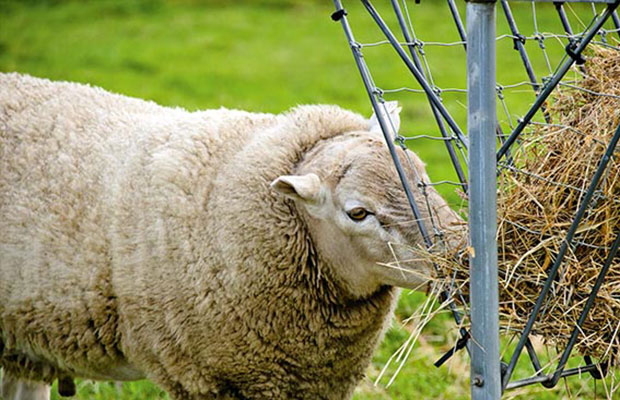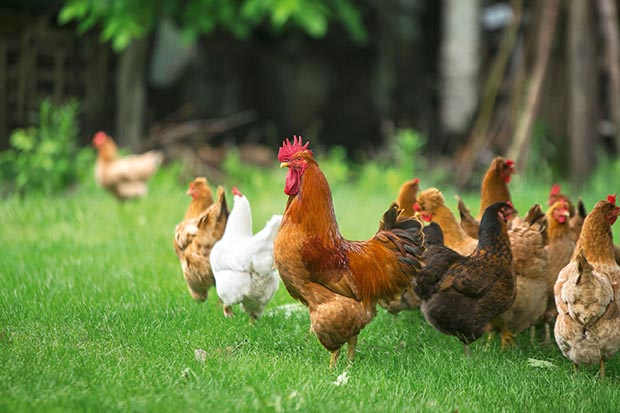18+ tasks to keep chickens, sheep and cattle healthy all summer long

Preventative action will keep livestock happy and healthy in peak summer.
Words: Nadene Hall
ALL STOCK
• Facial eczema preventative treatments should be underway. Talk to your vet about what zinc treatment is best (bolus, water treatment etc), and how to test your pasture for spore counts (very easy and quite cheap).
• Keep livestock in paddocks less prone to FE spore build-ups. The best ones have long, leafy grass, an open aspect and face west or south.
• If your paddocks are looking messy, resist the urge to top them. It will dry them out more quickly and increase the risk of stock getting FE; the fungal spores responsible live in the litter layer of pasture and will thrive in cut grass, putting your livestock at greater risk.
• Are you finding livestock seem to be unaffected by your electric fence? Check your earth pegs. These don’t work as well in dry weather, as the soil moves away from the pegs. Pour a bucket of water around your earth pegs every few days.
• Make sure there is plenty of shade in paddocks and that water is clean.
SHEEP

• Flies will be a problem for sheep, especially unshorn lambs and any with dags. Check twice a day for signs of strike. Use a preventative treatment.
• Have you organized a ram for this year’s mating season? He should be fit, keen, and in good health (brucellosis-free, up-to-date with his vaccinations). Check his back legs for strength, hooves, and have him shorn so he can cope better with working on hot days.
• Ewes should be gaining weight in the weeks before mating, as it helps to increase fertility. Make sure you have good pasture cover, and out feed hay, baleage and supplements if you need to. Long grass and supplements mean animals are less exposed to parasites, and it will help your animals transition from dry summer grasses to rich, green autumn pasture.
• If you are planning to shear, cooler, early mornings are best. Stress, heat, humidity, and dust in the yards can be enough to bring on pneumonia. Symptoms include difficulty breathing, rapid breaths, heaving sides, and the head down low and forward. Don’t expect to hear an animal coughing. Urgent veterinary treatment is required.
CATTLE
• If pasture is getting low due to dry weather, feed out supplements to give cattle a chance to maintain weight, and so they can avoid grazing short grass where the fungal spores that cause FE, and parasite infestations, are most prevalent.
• If you suspect cattle have a parasite infestation, test faecal samples before you drench. Resistance to pour-ons is widespread, and parasite burdens need careful management. Get advice from your vet.
CHICKENS

• Would you drink your flock’s water? This is a good test to apply to any livestock’s water supply. Dirty containers and water are more likely to carry diseases, and birds drink less because they don’t like dirty water.
• Keep water in a shaded area. Birds need cool water to help them breathe and to keep themselves cool. Even a few hours without water on a hot day can be enough to put them off laying for weeks at a time.
• Birds between 4-16 weeks are at the highest risk of picking up coccidia, a particularly nasty parasite.
• Older birds tend to form a natural immunity to coccidia. The exception is ex-battery hens which won’t have immunity and may be at risk too.
• Coccidia thrive in damp warm conditions, especially in the litter and soil around overflowing waterers.
• A flock’s water supply is most likely to be contaminated by coccidia due to bedding being scratched into it, or spilled water wetting the bedding underneath it. Muddy areas or puddles are also dangerous. Remove damp bedding, and improve the water system so it can’t spill or become contaminated. A waterer raised off the ground is a good option.
Love this story? Subscribe now!
 This article first appeared in NZ Lifestyle Block Magazine.
This article first appeared in NZ Lifestyle Block Magazine.
